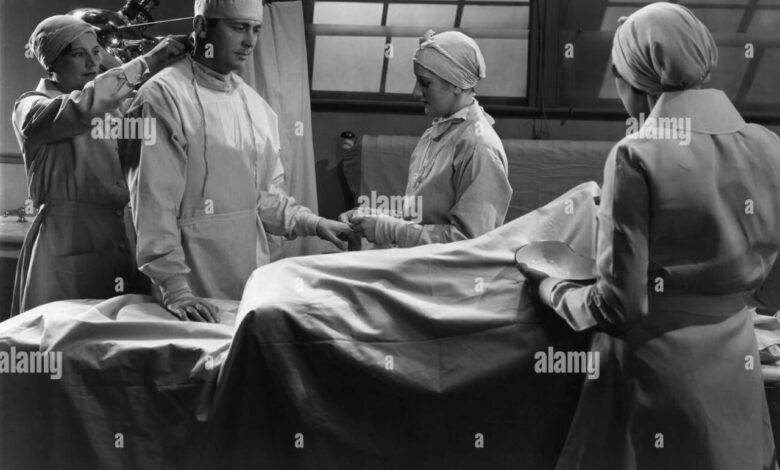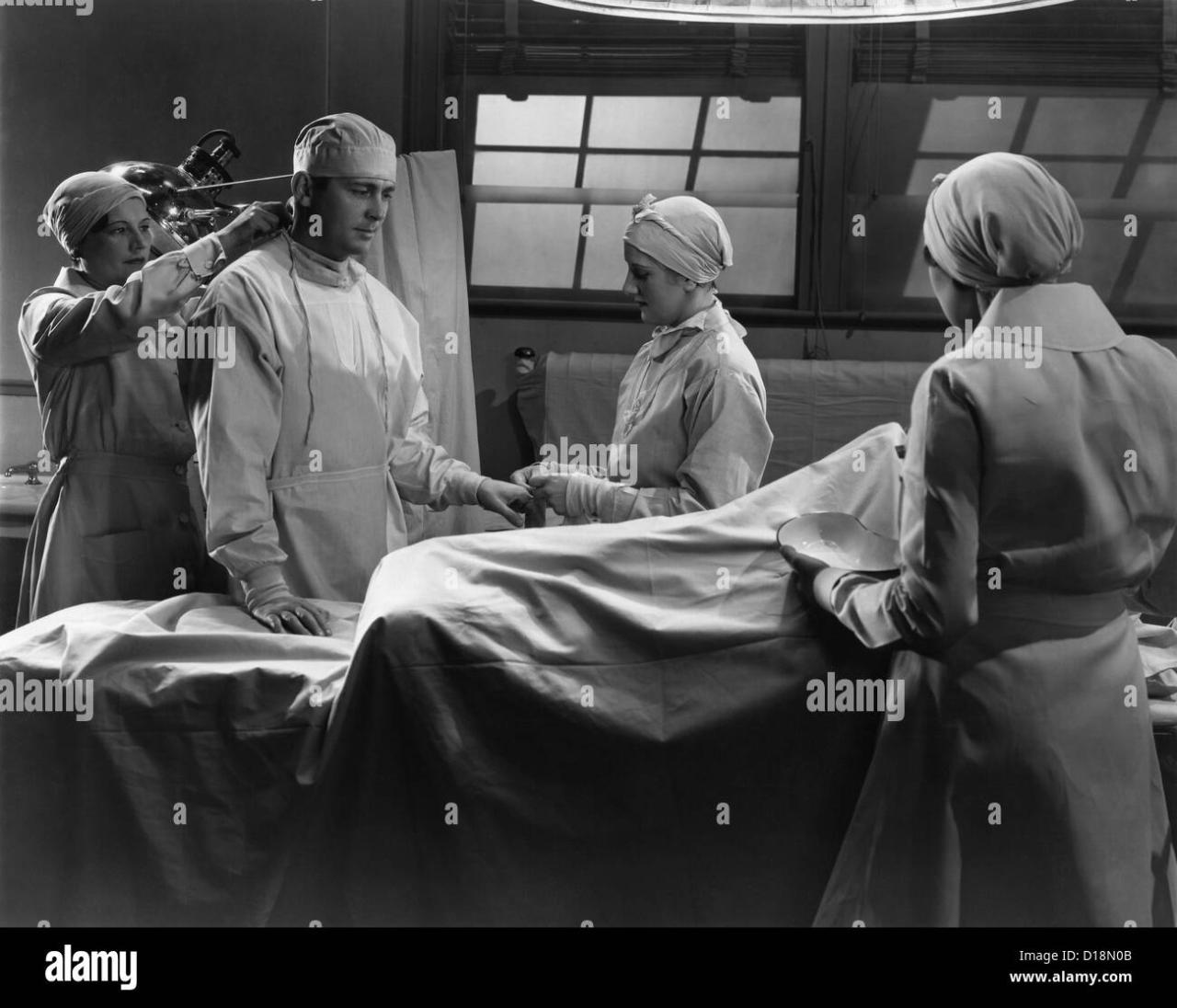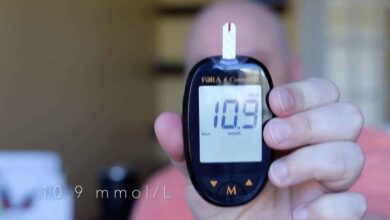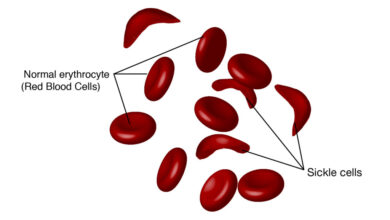
Getting in shape for surgery is crucial for a smoother recovery. This guide dives deep into the essential aspects of physical preparation, encompassing everything from exercise plans and dietary considerations to managing medications and mental well-being. We’ll explore the specifics for various surgical procedures, offering tailored strategies to optimize your health and ensure a positive outcome.
From the importance of cardiovascular health to the role of nutrition in healing, we’ll provide practical advice and actionable steps. We’ll also cover the significance of mental preparation and managing potential anxieties, equipping you with tools for a positive surgical experience. Get ready to learn how to navigate this crucial phase with confidence and preparedness.
Pre-Surgical Fitness Preparation
Getting physically fit before surgery is crucial for a smoother recovery and reduced risk of complications. A strong body is better equipped to handle the demands of surgery and the subsequent healing process. This preparation encompasses not just exercise but also a healthy diet to optimize your body’s ability to heal and rebuild.Physical fitness significantly impacts surgical outcomes.
Patients who are in better shape tend to experience faster recovery times, reduced pain, and a lower risk of complications like infections or blood clots. This preparation directly contributes to a more positive and efficient post-operative experience.
Importance of Physical Fitness for Successful Recovery
Physical fitness before surgery plays a vital role in minimizing risks and facilitating a quicker recovery. Stronger muscles provide better support for the body, enabling faster healing and reduced pain. Increased cardiovascular health ensures the body can efficiently circulate oxygen and nutrients to the surgical site, promoting tissue repair.
General Physical Requirements for Various Types of Surgery
The specific physical requirements vary depending on the type of surgery. For example, abdominal surgeries often require core strength for better support during recovery, while joint replacement procedures necessitate flexibility and range of motion. Thorough discussions with your surgeon are essential to understand the specific needs of your procedure.
Structured Exercise Plan for Improving Cardiovascular Health
A consistent cardiovascular exercise routine is crucial. A plan should include at least 30 minutes of moderate-intensity cardio, such as brisk walking, swimming, or cycling, most days of the week. This regimen enhances the heart’s efficiency and strengthens the circulatory system. Listen to your body and adjust the intensity based on your current fitness level. Consult with your physician before starting any new exercise program.
Exercises to Improve Strength and Flexibility
Strengthening exercises, such as squats, lunges, and push-ups, build muscle mass, improving overall strength and stability. Flexibility exercises, including stretching and yoga, enhance range of motion, reducing stiffness and improving mobility. Focus on exercises that target the muscles most affected by the specific surgery.
Comparison of Exercise Routines for Various Surgical Procedures
| Surgical Procedure | Recommended Exercise Focus | Benefits |
|---|---|---|
| Abdominal Surgery | Core strengthening exercises (planks, crunches), light cardio | Supports the abdomen during recovery, aids in reducing pain and complications |
| Joint Replacement (Hip/Knee) | Flexibility exercises (yoga, stretching), low-impact cardio | Improves range of motion, reduces stiffness, enhances mobility post-surgery |
| Cardiac Surgery | Low-impact cardio, gentle strength training | Enhances heart function and recovery from cardiac-related procedures |
Role of Nutrition in Pre-Surgical Fitness
A balanced diet rich in protein, fruits, and vegetables is essential for tissue repair and overall well-being. Adequate protein intake supports muscle growth and repair, while fruits and vegetables provide essential vitamins and minerals. Hydration is equally important, maintaining proper fluid balance for overall bodily functions.
Potential Risks of Not Preparing Physically
Insufficient physical preparation can lead to prolonged recovery times, increased pain, and a higher risk of complications. A weaker body may struggle to heal efficiently, potentially leading to infections or delayed wound healing. Post-operative complications, such as blood clots or respiratory issues, can also be more likely.
Sample Meal Plan for the Weeks Leading Up to Surgery
This sample meal plan emphasizes whole foods and provides a balanced intake of nutrients. Adjust portion sizes and specific foods based on individual dietary needs and preferences.
A healthy diet and consistent exercise will help your body heal more quickly after surgery.
- Breakfast (Example): Oatmeal with berries and nuts, protein shake
- Lunch (Example): Grilled chicken salad with mixed greens and vegetables, whole-wheat bread
- Dinner (Example): Baked salmon with roasted vegetables, quinoa
- Snacks: Fruits, vegetables, Greek yogurt, hard-boiled eggs
Dietary Considerations: Getting In Shape For Surgery
Pre-surgery dietary preparation is crucial for a smooth recovery. Proper nutrition significantly impacts the body’s ability to heal and manage potential complications. A well-planned diet can reduce stress on the body during the surgical process, leading to a faster and safer recovery. This section delves into the importance of dietary changes before surgery, exploring various approaches and highlighting the vital role of hydration.Dietary changes before surgery are not merely about losing weight; they are about optimizing the body’s physiological state to support the healing process.
By adjusting your diet, you can minimize risks, improve surgical outcomes, and enhance your body’s natural healing capabilities. The right approach depends on the specific surgical procedure and individual needs.
Significance of Dietary Changes
Dietary modifications before surgery are essential for various reasons. They aid in reducing inflammation, ensuring optimal blood clotting factors, and maintaining a healthy weight, which in turn reduces strain on the surgical site. Furthermore, a balanced diet provides the necessary nutrients to support the immune system, enabling the body to fight off infections more effectively. Surgical procedures, particularly major ones, require significant energy and resources from the body, which a proper pre-surgical diet can help provide.
Different Dietary Approaches
Various dietary approaches can be beneficial for pre-surgical preparation. A balanced, nutrient-rich diet that is low in processed foods, saturated fats, and excessive sugar is generally recommended. For specific procedures or individual needs, a doctor or registered dietitian can provide tailored dietary recommendations. This might involve a temporary elimination of certain foods, such as high-fiber foods, or a focus on easily digestible options.
Role of Hydration
Hydration is paramount during the pre-surgical and post-operative phases. Adequate fluid intake helps maintain blood volume, ensuring proper circulation and oxygen delivery to tissues. Dehydration can increase the risk of complications, making it vital to stay well-hydrated before and after surgery. This is often overlooked but plays a significant role in recovery.
Managing Specific Dietary Needs
Individuals with allergies, diabetes, or other dietary restrictions require tailored dietary plans. Consultation with a registered dietitian or a healthcare professional specializing in nutrition is crucial for developing a safe and effective pre-surgical plan. The specific needs for individuals with diabetes might involve adjustments to their usual insulin regimen, while those with allergies might require the elimination of specific allergens.
Modifying Existing Diets
Modifying existing diets to support optimal health involves gradual changes. Instead of drastically altering habits overnight, focus on incorporating healthier options and reducing unhealthy ones gradually. Substituting processed foods with fresh produce, lean proteins, and whole grains can significantly enhance nutritional intake. A gradual approach is crucial for long-term adherence and preventing nutritional deficiencies.
Recommended Dietary Changes for Different Surgical Procedures
| Surgical Procedure | Dietary Changes Recommended ||—|—|| Cardiovascular Surgery | Low-sodium, low-fat diet, reduced saturated fats, increase in fruits and vegetables || Orthopedic Surgery | High protein diet, foods rich in calcium and vitamin D, limited on foods that affect blood clotting || Gastrointestinal Surgery | Easily digestible foods, limited intake of fiber and fats || Bariatric Surgery | Gradual introduction of healthy foods, portion control |
Impact of Foods on Blood Clotting and Healing, Getting in shape for surgery
Certain foods can impact blood clotting and healing. For example, foods rich in vitamin K, such as leafy green vegetables, can influence blood clotting. Conversely, foods high in vitamin C, such as citrus fruits, can promote wound healing. Understanding these relationships is crucial for optimizing dietary choices. Consult your doctor or a registered dietitian for personalized advice.
Managing Medications
Taking care of your health before surgery is crucial, and that includes carefully managing any medications you’re already taking. Understanding how your medications might interact with the surgical process and your body’s response is essential for a smoother recovery. This section provides insights into managing medications before surgery, ensuring a safe and successful outcome.Managing your medications effectively before surgery is vital for your safety and well-being.
The interactions between your current medications and the surgical procedure can significantly impact the outcome. This section delves into the importance of this process and provides practical guidance for navigating it.
Importance of Medication Management
Proper medication management before surgery minimizes potential complications. Unforeseen reactions between existing medications and anesthesia or surgical procedures can occur. For example, blood thinners might increase bleeding risk during or after surgery. Therefore, a comprehensive medication review is necessary.
Medications Requiring Adjustment
Many medications might need adjustments before surgery. This includes, but is not limited to, blood thinners (e.g., warfarin, heparin), anti-platelet drugs (e.g., aspirin, clopidogrel), and medications that affect blood pressure or heart rate. Specific medications known to interact with anesthesia or surgical procedures should be discussed with your surgeon and anesthesiologist.
Medication-Surgical Procedure Interactions
Certain medications can interact with anesthesia and surgical procedures, potentially causing complications. For instance, some medications can affect blood clotting, increasing the risk of bleeding during or after surgery. Other medications might interfere with the effectiveness of anesthesia, potentially leading to unexpected reactions. A clear communication with the surgical team is paramount.
Getting in shape for surgery is crucial for a speedy recovery, but it’s also important to consider the overall health of the patient. While focusing on physical fitness, it’s worth exploring if more could be done to reduce children’s asthma attacks, like looking into can more be done to reduce childrens asthma attacks. Ultimately, a holistic approach to health is key for successful surgery prep and a smooth recovery journey.
Communication with Healthcare Professionals
Open communication with your doctors is essential for effective medication management. Discuss all medications, including over-the-counter drugs, supplements, and herbal remedies, with your surgeon and anesthesiologist. This allows them to assess potential risks and tailor the surgical plan accordingly. Provide a detailed list of all medications, dosages, and frequency of intake.
Managing Medication Side Effects
Some medications can have side effects. Understanding these side effects and discussing management strategies with your doctor is important. If you experience side effects, consult your doctor immediately. Do not discontinue any medications without first consulting your physician.
Organizing a Medication List
A well-organized list of medications is critical for your surgical team. This list should include the name of the medication, dosage, frequency, and any special instructions. It’s helpful to create a detailed list that includes the name of the drug, dosage, frequency, route of administration (oral, intravenous, etc.), and any known allergies or sensitivities. You should also note any other relevant information, such as the reason for taking the medication and any specific instructions.
This helps ensure the surgical team has all the necessary information to manage your medications safely and effectively.
Mental and Emotional Preparation

Preparing for surgery is a multifaceted process, encompassing physical, dietary, and emotional aspects. A significant part of this preparation involves managing the anxieties and stresses that often accompany such a significant life event. Understanding and addressing these mental and emotional factors can significantly impact the surgical recovery process.Emotional well-being plays a crucial role in the body’s ability to heal and cope with the challenges of surgery.
A positive mindset and effective stress management techniques can contribute to a smoother recovery, reducing complications and improving overall outcomes. Therefore, proactive mental preparation is not just beneficial but essential for a successful surgical journey.
Managing Stress and Anxiety
Stress and anxiety before surgery are common experiences. These feelings can manifest physically, leading to increased heart rate, muscle tension, and sleep disturbances. Recognizing and actively managing these emotions is vital for a positive surgical experience. Effective stress management techniques can help mitigate these physiological responses, promoting relaxation and overall well-being.
Relaxation Techniques
Various relaxation techniques can be employed to reduce anxiety and promote a sense of calm before surgery. These techniques aim to lower stress hormones, slow the heart rate, and foster a state of mental and physical relaxation. Deep breathing exercises, progressive muscle relaxation, and guided imagery are examples of effective relaxation methods.
- Deep Breathing Exercises: These exercises focus on controlled inhalation and exhalation, slowing the breath and promoting relaxation. Deep breathing can calm the nervous system and reduce feelings of anxiety. Incorporating these techniques into a daily routine can help prepare the body for the stress of surgery. Practice deep breathing techniques throughout the day, in moments of heightened anxiety, to cultivate a calming response.
- Progressive Muscle Relaxation: This technique involves systematically tensing and releasing different muscle groups in the body. By focusing on the sensations of tension and relaxation, individuals can learn to release physical tension associated with anxiety. This practice can be learned through guided exercises or self-directed sessions, helping individuals effectively manage physical symptoms of stress.
- Guided Imagery: Guided imagery involves using mental imagery to create a calming and peaceful environment. Visualizing a relaxing scene, such as a serene beach or a peaceful forest, can help shift focus away from anxieties related to the surgery. This technique can be easily incorporated into a daily routine, allowing for practice and improvement in managing stress before surgery.
Mental Health Support
Accessing mental health support is crucial for managing anxiety and stress surrounding surgery. Support can take various forms, from counseling to support groups.
- Counseling: A therapist or counselor can provide a safe space to discuss anxieties and concerns related to the surgery. They can offer coping mechanisms and strategies for managing stress and anxiety. Counseling can be a valuable resource to help individuals navigate the emotional challenges that accompany major surgeries.
- Support Groups: Support groups offer a platform for individuals facing similar experiences to connect, share their feelings, and gain support from others who understand. The shared experiences and support offered by these groups can be invaluable for coping with the emotional aspects of surgery.
Impact of Emotional Well-being on Surgical Recovery
Emotional well-being significantly impacts the surgical recovery process. A positive attitude and a sense of calm can contribute to faster healing and a more comfortable recovery period. Conversely, prolonged stress and anxiety can hinder the body’s ability to heal, potentially leading to complications.
Positive Thinking and Visualization
Positive thinking and visualization techniques can be powerful tools for managing anxiety and promoting a positive outlook before surgery. Visualizing a successful recovery and focusing on positive outcomes can help reduce stress and build confidence. This practice involves consciously creating mental images of a smooth and positive recovery.
Different Approaches to Mental Preparation
Different approaches to mental preparation for surgery exist, each with its own strengths and limitations. Some individuals find support groups helpful, while others prefer individual therapy. Understanding these different approaches can help individuals choose the method that best suits their needs. Personal preferences and available resources will influence the choice of method.
Managing Potential Fears
Addressing potential fears related to surgery is essential for effective mental preparation. Strategies for managing these fears can include open communication with healthcare professionals, exploring the procedure in detail, and focusing on positive affirmations.
- Open Communication: Communicating openly with healthcare professionals about concerns and fears is vital. Asking questions and seeking clarification can help alleviate anxieties related to the surgical procedure. A clear understanding of the procedure can ease apprehensions and promote a sense of control.
- Detailed Exploration: Understanding the surgical procedure in detail can help manage fears related to the unknown. Researching the procedure, talking to other patients who have undergone similar surgeries, and gathering information from healthcare professionals can help ease anxieties and build confidence.
- Positive Affirmations: Positive affirmations, such as “I am strong,” “I am resilient,” and “I will recover,” can help build confidence and foster a positive mindset. Repeating these affirmations regularly can reinforce a sense of hope and control over the recovery process.
Specific Considerations for Different Procedures
Navigating the pre-surgical landscape can feel overwhelming, especially when considering the unique requirements for various procedures. Understanding the tailored approach to fitness, diet, medication management, and mental preparation is crucial for a smoother journey and a quicker recovery. This section delves into the specific needs of different surgical types, equipping you with the knowledge to proactively address these considerations.
Pre-Surgical Fitness Requirements
Pre-surgical fitness requirements vary significantly based on the complexity and nature of the operation. For example, a knee replacement necessitates a higher level of lower body strength and mobility compared to a routine cataract surgery. A comprehensive exercise plan tailored to the specific procedure is essential. This plan should incorporate cardiovascular conditioning, strength training, and flexibility exercises.
Cardiovascular exercises help improve circulation and endurance, while strength training builds muscle mass and reduces the risk of complications. Flexibility exercises help maintain joint range of motion, crucial for post-operative recovery. Examples include walking, swimming, and light weightlifting. The intensity and duration of these exercises should be gradually increased under the guidance of a healthcare professional.
Dietary Considerations for Different Procedures
Surgical procedures demand specific dietary adjustments. Nutritional needs are altered before and after the operation. For example, a patient undergoing a heart bypass might benefit from a diet low in saturated fats to reduce the risk of blood clots, while a patient with a hernia repair might need to focus on a high-protein diet to promote tissue healing.
A well-balanced diet, rich in fruits, vegetables, and lean proteins, is generally recommended for all patients. However, specific dietary restrictions or modifications might be necessary based on the individual’s condition and the surgical procedure.
Getting physically ready for surgery is crucial, and it’s something I’ve been focusing on lately. It’s important to consider any underlying health conditions that might impact the recovery process, like Epstein-Barr virus and its potential connection to multiple sclerosis symptoms. Understanding those potential links, like epstein barr multiple sclerosis symptoms , helps me tailor my fitness routine for optimal results and a smoother recovery.
So, I’m sticking to a healthy diet and regular exercise, which is my best strategy for getting in shape for surgery.
Impact of Medications on Different Procedures
Medications play a critical role in the surgical process, and their interaction with different procedures needs careful consideration. For instance, blood thinners can significantly impact surgical procedures involving the heart or blood vessels, necessitating adjustments in dosage or discontinuation. Anti-inflammatory drugs can increase the risk of bleeding during certain procedures. It is crucial to provide the surgical team with a complete list of all medications, including over-the-counter supplements.
The doctor will determine how these medications should be managed before, during, and after the surgery.
Mental and Emotional Preparation Strategies
Surgical procedures can induce anxiety and stress. Effective mental and emotional preparation is vital for successful outcomes. Techniques such as meditation, deep breathing exercises, and mindfulness can help manage stress and promote relaxation. Connecting with support groups, discussing concerns with loved ones, and engaging in activities that bring joy can help maintain a positive outlook. For example, patients undergoing major procedures might find support groups or therapy particularly helpful.
Getting in shape for surgery often involves a lot of self-improvement, and it’s inspiring to see how someone’s decision to embrace their unique appearance, like the woman who decided to stop covering vitiligo and join a vitiligo awareness effort woman decides to stop covering vitiligo joins awareness effort , can be a powerful motivator. Ultimately, focusing on both physical and mental well-being is key to a successful recovery journey.
This can provide a safe space to share anxieties and gain insights from others facing similar challenges.
Post-Operative Recovery Plans
Post-operative recovery plans vary greatly based on the type of surgery. For example, knee replacement patients often require physical therapy to regain mobility, while patients recovering from a simple appendectomy may have a more straightforward recovery process. The duration of recovery, the need for physical therapy, and the type of supportive care will vary based on the procedure.
Detailed instructions on managing pain, wound care, and activity limitations are essential for each procedure.
Summary of Specific Requirements for Different Procedures
| Surgical Procedure | Pre-Surgical Fitness | Dietary Considerations | Medication Management | Mental/Emotional Preparation | Post-Operative Recovery |
|---|---|---|---|---|---|
| Knee Replacement | High emphasis on lower body strength and mobility | Emphasis on nutritional balance, potentially low sodium | Careful monitoring of blood thinners, anti-inflammatory drugs | Addressing concerns about pain, mobility loss | Extensive physical therapy, gradual increase in activity |
| Heart Bypass | Cardiovascular fitness is critical | Low saturated fat, cholesterol-conscious diet | Managing blood thinners, blood pressure medications | Addressing fears of surgery, hospital stay | Monitoring for heart complications, gradual increase in activity |
| Cataract Surgery | General fitness, no specific requirements | Regular diet | Managing medications affecting eye health | Addressing anxieties about vision loss | Simple recovery, focusing on eye care |
Post-Surgical Recovery Planning

A crucial step in your journey to health is meticulously planning your post-surgical recovery. This involves anticipating potential challenges and developing strategies to navigate them effectively. A well-structured plan will not only aid in a smoother recovery but also significantly reduce the risk of complications. It’s like charting a course for your body’s journey back to wellness.A comprehensive post-surgical recovery plan is essential for successful healing.
It provides a roadmap for managing pain, addressing potential limitations, and ensuring adherence to medical instructions. This proactive approach fosters a more controlled and predictable recovery process, minimizing unforeseen obstacles and maximizing your chances of a swift and complete return to your pre-surgery lifestyle.
Importance of a Post-Surgical Recovery Plan
A post-operative plan is vital for managing potential complications and ensuring optimal healing. It provides a structured approach to address physical limitations, pain management, and adherence to medical recommendations. A well-defined plan helps patients anticipate and prepare for potential challenges, ultimately leading to a more successful and comfortable recovery.
Potential Physical Limitations and Challenges
Post-surgery, various physical limitations may arise depending on the procedure. These limitations can range from restricted movement due to dressings or casts to weakness in specific muscle groups. Understanding these potential limitations beforehand helps patients adjust their expectations and develop coping mechanisms. For example, after a hip replacement, patients might need assistance with mobility for a period.
Tips for Managing Pain and Discomfort
Effective pain management is crucial for a comfortable recovery. It’s essential to communicate openly with your healthcare team about pain levels and any discomfort. Following prescribed pain medication regimens diligently is key. Utilizing complementary techniques like heat or ice packs, relaxation exercises, and guided imagery can also significantly alleviate discomfort. Always consult your doctor or physical therapist for tailored pain management strategies.
Importance of Following Post-Operative Instructions
Adherence to post-operative instructions is paramount for a successful recovery. This includes diligently following dietary restrictions, medication schedules, and physical therapy recommendations. These instructions are meticulously crafted by healthcare professionals to optimize healing and minimize risks. Disregarding these instructions can lead to delayed healing, complications, and an extended recovery period.
Examples of Support Systems
Building a strong support system is essential for post-surgical recovery. Family members, friends, or support groups can provide emotional and practical assistance. This support system can help with tasks such as transportation, meal preparation, and providing emotional encouragement. For example, a friend could help with grocery shopping or light household chores. Consider joining a support group specific to your surgery type.
Online communities can also offer invaluable emotional support and practical advice from others who have undergone similar procedures. A support system can provide encouragement, alleviate stress, and ensure you have the practical assistance needed during your recovery.
Final Thoughts
In conclusion, meticulous preparation is key to a successful surgical journey. This comprehensive guide offers a structured approach to getting in shape for surgery, encompassing physical fitness, dietary adjustments, medication management, and mental well-being. Remember, your proactive approach will significantly impact your recovery process. By understanding the specifics for your procedure and following these guidelines, you’ll be well-equipped to navigate this critical time with confidence and achieve optimal outcomes.





